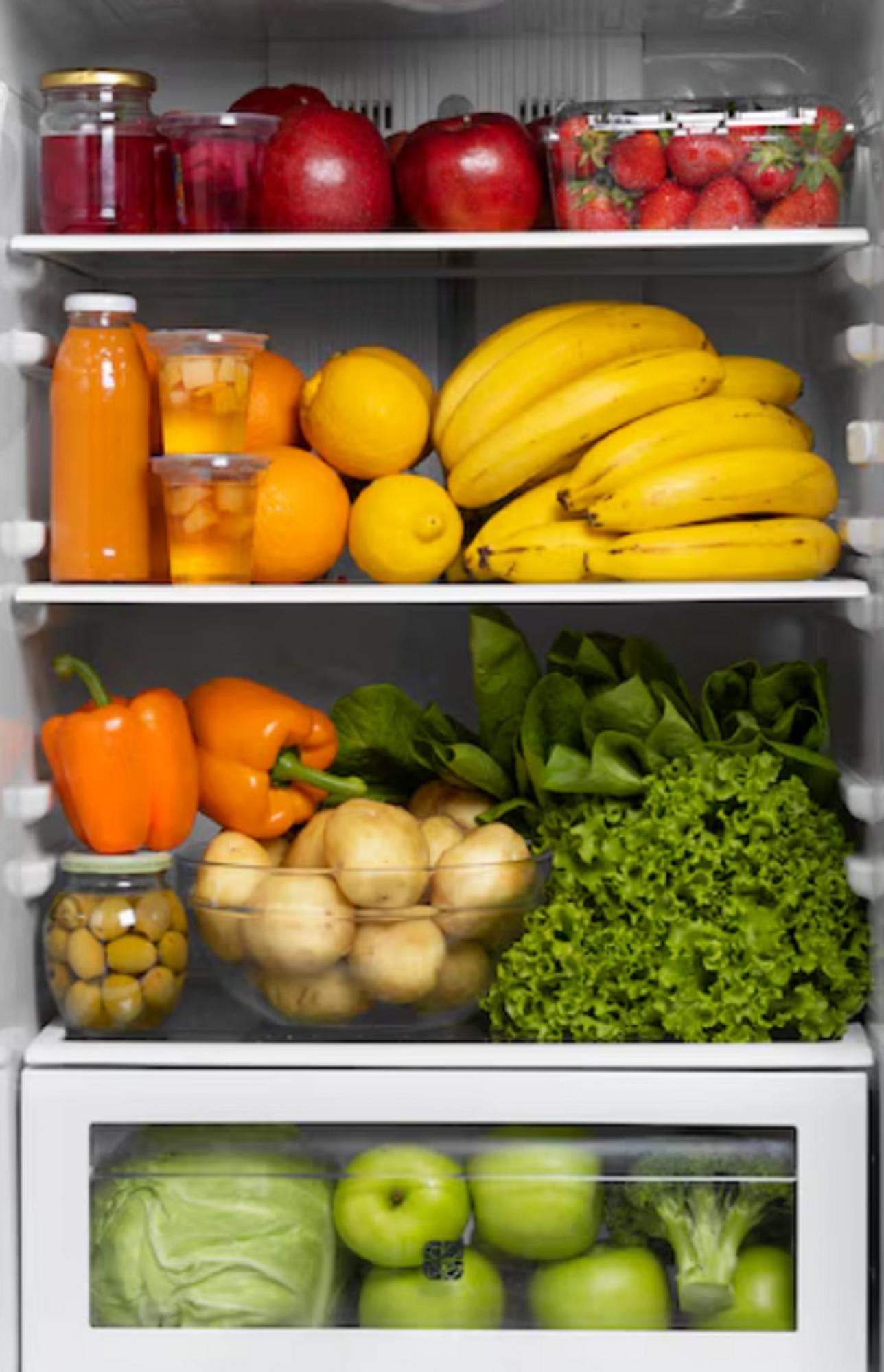Can you store fruits and vegetables together? Here's how it affects freshness
 How long to store vegetables and fruits together (photo: Freepik.com)
How long to store vegetables and fruits together (photo: Freepik.com)
Storing fruits and vegetables at home is an art that requires attention to detail. However, they have different storage needs and can even harm each other.
RBC-Ukraine provides tips to help you not only preserve freshness but also save money.
Ethylene: the main culprit of rapid spoilage
Fruits like apples, bananas, pears, and avocados release ethylene gas, which accelerates ripening. If stored next to vegetables sensitive to ethylene, such as lettuce, broccoli, or carrots, they quickly lose their freshness.
Ethylene speeds up decay and changes the texture of produce, making it soft. That's why it's important to separate fruits and vegetables that release this gas from those that are sensitive to it.
For example, potatoes stored with apples may sprout faster due to ethylene exposure. It's essential to keep these details in mind to ensure your produce stays fresh longer.
Optimal conditions for fruits and vegetables
Different products require different storage conditions. For instance, citrus fruits tolerate cold well, while bananas quickly turn black in the fridge.
Vegetables like cabbage and carrots prefer a humid environment, whereas apples or pears thrive in dry conditions. Additionally, storage temperature affects quality: fruits often require lower temperatures than vegetables.
To avoid problems, store each product in the conditions that best suit it. Placing them in different sections of the fridge or using separate containers will help achieve the best results.
Why it's important to separate produce
Combining fruits and vegetables can alter their taste and smell. Fruits with strong aromas, such as oranges or melons, can transfer their scent to vegetables. This is especially noticeable when they are stored in a closed space.
Additionally, vegetables may lose their crispness due to excess moisture released by fruits. For example, if cucumbers are stored with apples, they may become soft and tasteless.
Such interactions negatively affect the quality of produce and shorten their shelf life.

Separating fruits and vegetables is an easy way to keep them fresh and preserve their natural taste (photo: Freepik.com).
Are there any exceptions?
Although, in general, fruits and vegetables are better stored separately, there are some exceptions. For example, onions and garlic thrive when stored next to potatoes, as long as they are kept in a dry, dark place.
Apples can also help extend the shelf life of certain root vegetables, such as beets or carrots, if stored in a cool cellar. However, even in these cases, it’s important to monitor the condition of the produce and remove any spoiled items to prevent the spread of rot.
Exceptions apply only to those products that are not sensitive to ethylene and have similar storage needs. Therefore, it’s better not to take risks and follow the tested recommendations.
Tips for home storage
To avoid mistakes, follow these simple rules. Use separate bins or containers for fruits and vegetables. For example, store carrots in moist sand or fabric bags, and apples in dry, well-ventilated conditions.
In the fridge, use special compartments for vegetables that maintain the optimal humidity level. Fruits that spoil quickly, such as berries, are better kept in containers with ventilation.
Remember to regularly check your produce for spoiled items. This way, you can avoid spoilage and ensure maximum freshness.
Sources: Allrecipes and Agromarket.

